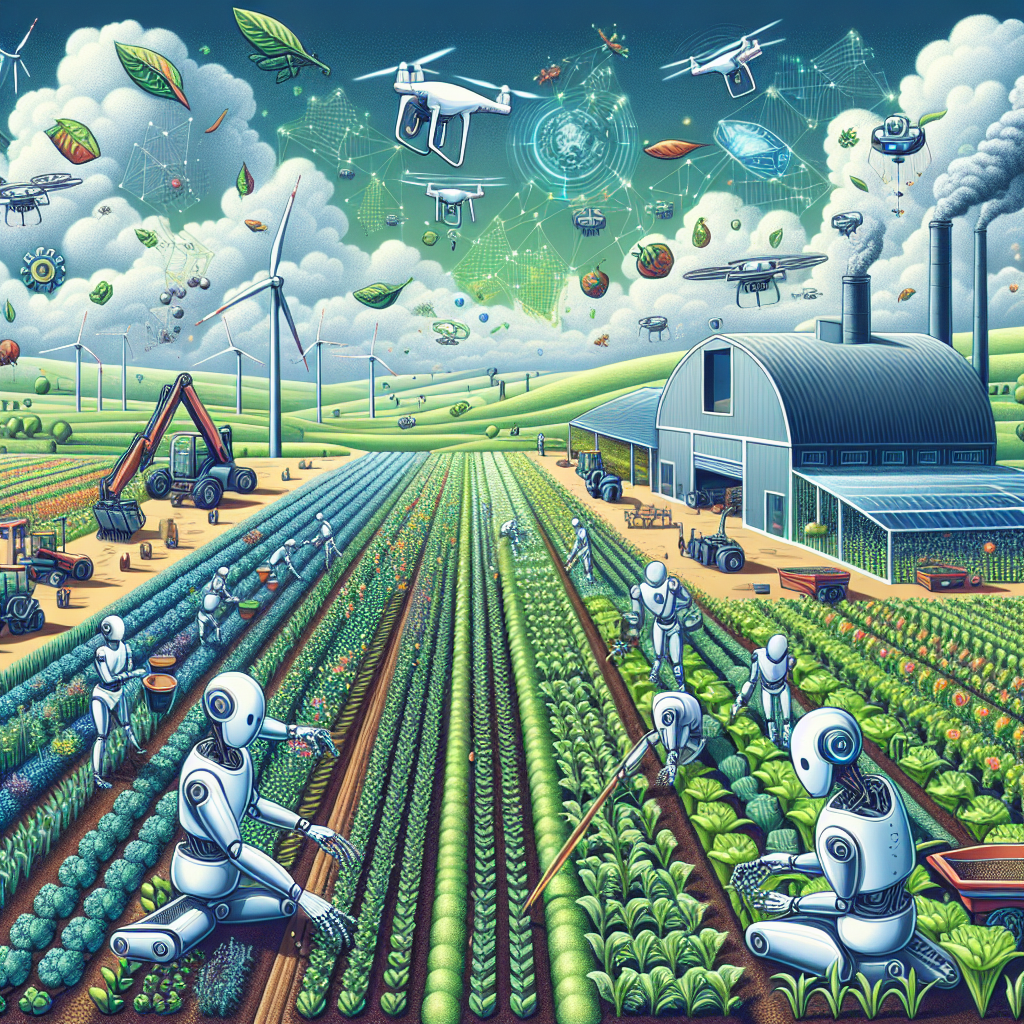The Role of AI Consulting in Agriculture and Food Production
Artificial Intelligence (AI) has been revolutionizing various industries, and agriculture and food production are no exceptions. AI consulting in agriculture and food production involves the use of advanced technologies and data analytics to improve efficiency, productivity, and sustainability in farming and food processing. With the increasing demand for food due to the growing global population, AI consulting plays a crucial role in helping farmers and food producers meet these challenges. In this article, we will explore the role of AI consulting in agriculture and food production and its benefits.
Benefits of AI Consulting in Agriculture and Food Production
1. Precision Farming: AI consulting helps farmers optimize their operations by using data analytics to monitor and manage crop growth, irrigation, and fertilization. This allows farmers to make informed decisions based on real-time data, leading to increased crop yields and reduced costs.
2. Pest and Disease Management: AI consulting can help farmers identify and treat pest and disease outbreaks early on, reducing the need for chemical pesticides and ensuring healthier crops. By analyzing data from sensors and drones, AI can detect signs of pests or diseases before they become widespread, allowing farmers to take preventative measures.
3. Crop Monitoring and Yield Prediction: AI consulting enables farmers to monitor crop growth and predict yields with greater accuracy. By analyzing data from satellites, drones, and sensors, AI can provide farmers with insights into crop health, growth patterns, and yield potential. This information helps farmers make informed decisions about harvesting, storage, and marketing.
4. Supply Chain Optimization: AI consulting helps food producers optimize their supply chains by analyzing data on inventory, demand, and transportation. By using AI algorithms, food producers can reduce waste, improve delivery times, and ensure that products reach consumers in a timely manner.
5. Food Safety and Quality Control: AI consulting can help food producers ensure the safety and quality of their products by monitoring processing operations and detecting any anomalies. By using AI technologies such as machine vision and sensors, food producers can identify contaminants, defects, or other issues that may affect product quality.
6. Sustainability: AI consulting plays a key role in promoting sustainable farming practices by optimizing resource use, reducing waste, and minimizing environmental impact. By analyzing data on soil health, weather patterns, and water usage, AI can help farmers make more sustainable decisions that benefit both the environment and the bottom line.
FAQs
Q: How does AI consulting differ from traditional consulting in agriculture and food production?
A: AI consulting in agriculture and food production relies on advanced technologies such as machine learning, data analytics, and automation to provide insights and recommendations. Traditional consulting may involve more manual processes and human expertise, while AI consulting leverages data-driven approaches to optimize operations and decision-making.
Q: What are some examples of AI technologies used in agriculture and food production?
A: Some examples of AI technologies used in agriculture and food production include machine learning algorithms for crop monitoring, computer vision for quality control, drones for aerial imaging, and sensors for data collection. These technologies help farmers and food producers improve efficiency, productivity, and sustainability.
Q: How can farmers and food producers benefit from AI consulting?
A: Farmers and food producers can benefit from AI consulting by gaining access to advanced technologies and data analytics that help optimize their operations, reduce costs, and improve productivity. AI consulting can also help farmers make more informed decisions about crop management, pest control, supply chain optimization, and sustainability.
Q: What are the challenges of implementing AI consulting in agriculture and food production?
A: Some challenges of implementing AI consulting in agriculture and food production include the high cost of technology adoption, data privacy concerns, and the need for specialized expertise. Farmers and food producers may also face challenges in integrating AI technologies into existing systems and workflows.
In conclusion, AI consulting plays a crucial role in transforming agriculture and food production by leveraging advanced technologies and data analytics to optimize operations, improve efficiency, and promote sustainability. By harnessing the power of AI, farmers and food producers can meet the challenges of a growing global population and ensure a more secure and sustainable food supply for the future.

